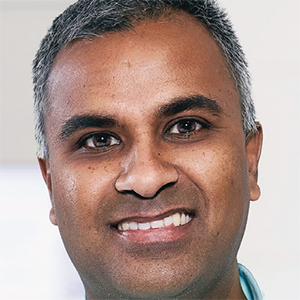
SOLUTIONS – Krishna C. Kalva
The right queries can lead to clarity
 One of my recent articles focused on how a questioning mindset can be embraced to gain perspective. In this article, I would like to share my views about investigative questions and how they can be leveraged to obtain clarity.
One of my recent articles focused on how a questioning mindset can be embraced to gain perspective. In this article, I would like to share my views about investigative questions and how they can be leveraged to obtain clarity.
Sometimes we encounter situations where it is unclear whether the planned outcomes are achievable. When the preconceived outcomes are not witnessed, we might be disappointed and feel uncomfortable.
When experiencing discomfort, a wide range of thoughts and emotions can keep our minds occupied. We tend to indulge in these mental gymnastics wishing that the experience encountered were different, while nurturing our strong feelings and emotions associated with the experience.
We ask ourselves why it happened to us, or think of how we would rather not be in the situation in the first place. We tend to avoid, push away or try to focus on something else to avoid the discomfort.
While the tendency might provide temporary relief, the discomfort we are avoiding will eventually return, asking us to act to understand the situation and obtain clarity. This clarity of thought allows us to see the situation “as is” by acknowledging the discomfort and accepting the situation at hand. Once we have that clarity, the experience will lessen the power that we allowed the discomfort to impose on us.
The Question Connection
One of the tools that helps in our journey is asking questions to investigate what we are thinking and how we are feeling.
For example, if a project didn’t go as planned and failed to take off, it is quite natural to feel disappointed. As the project lead, you offer to take complete responsibility, making you feel vulnerable. It might be possible that your experience with the recent project might have a negative impact on future projects and your reputation.
However, asking ourselves some investigative questions will be helpful:
- “Did the project really fail, or did I miss out in executing certain key tasks that led the project to not move forward?”
- “What makes me feel the way I feel about the project?”
- “How would I feel if I remove the thought and belief that the project failed and only focus on the task that I did not execute?”
We can ask ourselves as many investigative questions as we want. Through investigation we separate ourselves from the event by questioning our thoughts and move closer to gaining perspective about the situation.
Creating Clarity
Once we have gained perspective there is clarity in our train of thoughts, moving us closer to a reality where we accept “what is” without trying to change or mentally challenge the outcome. Once we have the full understanding about the situation, we start to see the experience as a natural unfolding of events through the lens of perspective.
Through perspective we start to see the unfolding of events differently, remaining unattached to the outcomes witnessed. It takes time, patience and perseverance to practice asking investigative questions and coaching plays an important role to practice asking investigative questions, and coaching prays an important role.
Conclusion
Let me take your attention back to the original idea, investigative questions. When something remains unresolved, questions can be used as tools to investigate what we are thinking and feeling. Investigative questions can also be called self-reflective questions, allowing us to reflect on ourselves as individuals and on each event that unfolded throughout the experience.
While questions help us find answers, it is important to keep in mind that we don’t need to push ourselves too hard. It might be possible that we are not yet ready to receive the answer, as there is still some more work to do in gaining the required perspective.
Once we have the perspective, we realize that questions are more powerful than the answers. They act as the guiding force in helping us see and accept the reality of what is.
 Krishna C. Kalva is program manager for sales leadership excellence in Germany for Siemens Healthineers. Email him at krishnachaitanya.kalva@siemens-healthineers.com or connect through LinkedIn at linkedin.com/in/krishna-chaitanya-kalva-a2773123.
Krishna C. Kalva is program manager for sales leadership excellence in Germany for Siemens Healthineers. Email him at krishnachaitanya.kalva@siemens-healthineers.com or connect through LinkedIn at linkedin.com/in/krishna-chaitanya-kalva-a2773123.






